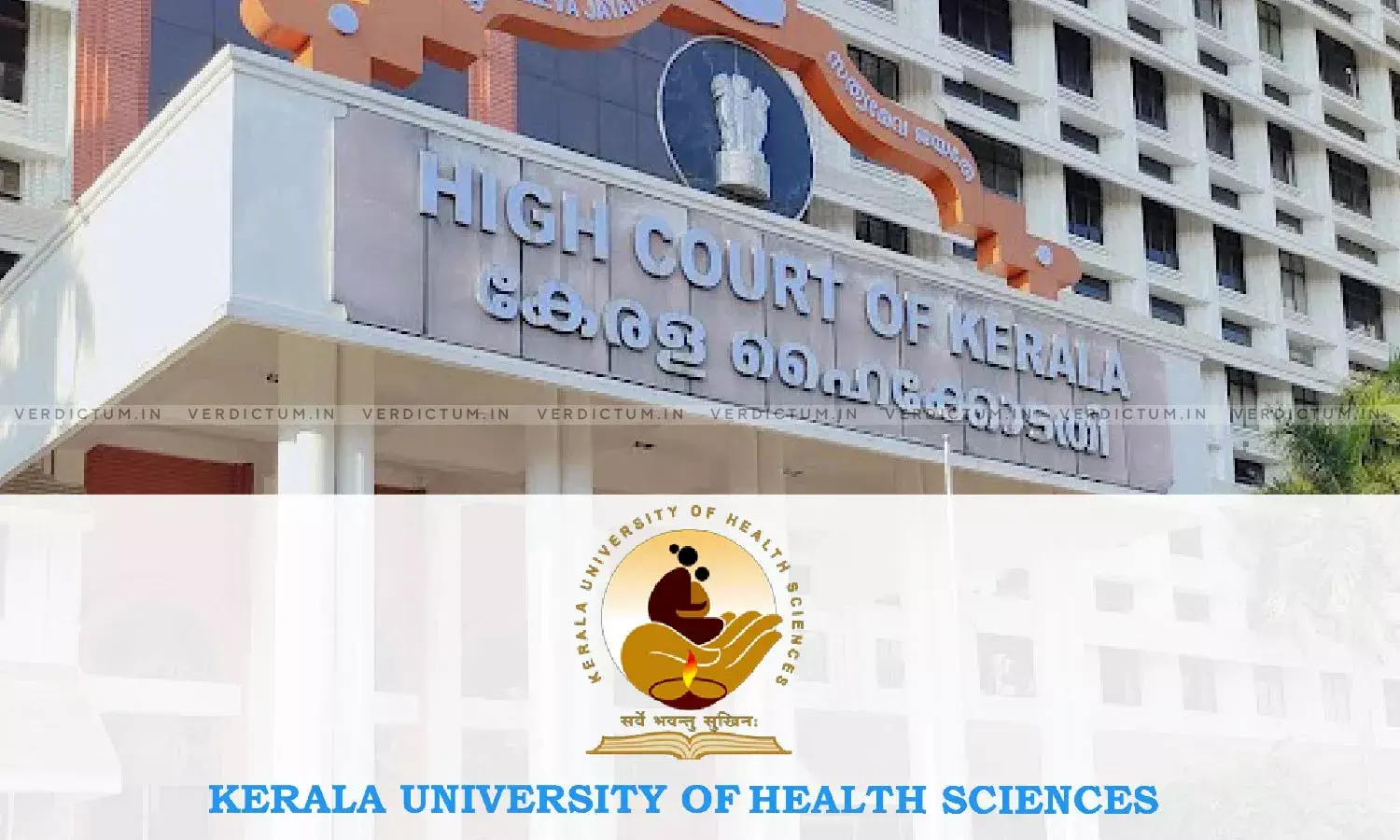Absolute Freedom At Age Of 18 Not Good For Society, Maturation Of Brain Happens At 25: Kerala Health University Before HC

In a plea by students challenging restrictions on the timings of hostels in Medical Colleges, the Kerala University of Health Sciences (KUHS) has submitted that the age of maturity does not necessarily bring in brain maturation and that seeking absolute freedom on attaining the age of 18 may not be appropriate and good for the society.
Supporting the restrictions on timings in hostels for students, through a statement filed through its Standing Counsel Advocate P. Sreekumar, the University has said, "Neurobehavioral, neuromorphological, neurochemical, neurophysiological and neuropharmacological evidence suggests that the brain remains in active state of maturation during adolescence. Such evidences supports the hypothesis that the adolescent brain is structurally and functionally vulnerable to environmental stresses, risky behavior, drug addiction, impaired driving and unprotected sex. The development of prefrontal cortex of the brain is very important for complex behavioral performance and the development and maturation of prefrontal cortex is fully accomplished at the age of 25 years".
All medical colleges in the state require affiliation from the KUHS to function.
The University has said that considering scientific facts, "seeking absolute freedom on attaining the age of 18 may not be appropriate and good for the society".
The University has said that opening up the gates of hostels without any regulation, would be detrimental to society at large if the same is done without a proper scientific study. As per the University, various studies conducted on adolescent behaviour point to the fact that the percentage of road accidents and fatalities, use of drugs and other substances, rate of suicides and homicides etc are very high among them.
"It is respectfully submitted that the age of adolescence is too risky to be handled and seeking absolute freedom, which the petitioners may not even get at their homes is not justifiable. This Hon'ble Court has to strike a balance between the necessity to ensure discipline in the hostel and the needs of the students", the University has said in its statement before the Court.
The University has also said that unlike in the cases of campuses of Engineering Colleges of Management Institutions, which could be properly secured, a medical college campus is always open to the public and the number of persons visiting the campus on each day would run to thousands, posing a security threat.
Opposing the plea, the University has said, "It is also submitted that the petitioners who are only a miniscule percentage, when compared to the total number of inmates, cannot be deemed to represent the interests of all the inmates. So also they did not highlight the concerns of their parents, who pay for their hostels and who put them up in the hostels".
It has contended that sleepless nights and nightlife are not meant for the students and it is the duty of the educational institution and the university to frame regulations contemplating sufficient rest to the students. It was further added that restrictions imposed are only reasonable and which are necessary to ensure discipline in the institution.
The Kerala High Court on Tuesday directed all Principals and other concerned Authorities of the Medical Colleges to act in terms of the latest Government Order which relaxes the timings of the hostels substantially.
The bench of Justice Devan Ramachandran noted that as per the government order of December 6, even though the gates of the hostels for boys and girls are to close by 9.30 p.m, it gives sufficient leeway to the students to enter it after that time, subject to certain bare minimum conditions.
Thus the Court directed all Principals and other concerned Authorities of the Medical Colleges to act in terms of the afore Government Order with immediate effect. The Court will consider the matter again on Thursday.
Cause Title- Fiona Joseph v. State of Kerala & Ors.
Click here to read/download Order
With PTI inputs

